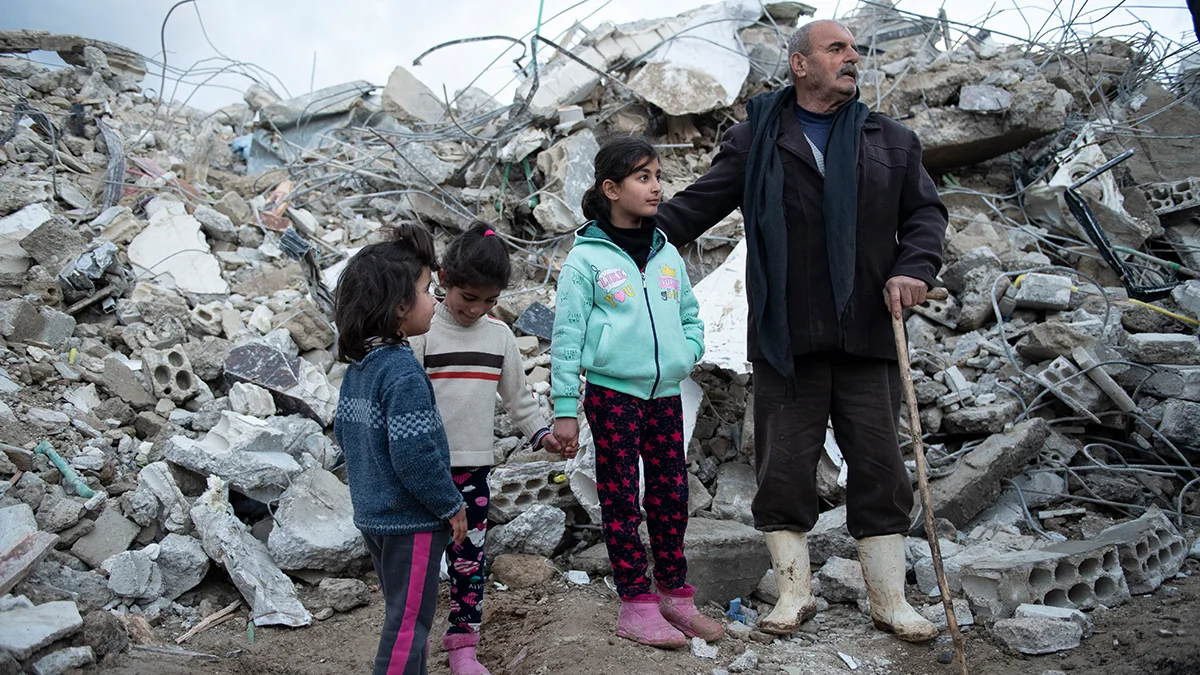Seven days after two devastating earthquakes and more than 1,600 aftershocks hit south-east Türkiye and Syria – causing widespread destruction and taking the lives of thousands of people – UNICEF is warning that millions of children are in need of urgent humanitarian support.
While the total number of children affected remains unclear, 4.6 million children live in the 10 provinces of Türkiye hit by the earthquakes, and more than 2.5 million children are affected in Syria.
"The children and families of Türkiye and Syria are facing unimaginable hardship in the aftermath of these devastating earthquakes," said UNICEF Executive Director Catherine Russell. “We must do everything in our power to ensure that everyone who survived this catastrophe receives life-saving support, including safe water, sanitation, critical nutrition and health supplies, and support for children's mental health. Not only now, but over the long term.”
The number of children killed and injured during the quakes and their aftermath has not yet been confirmed but is likely to be in the many thousands. The official total death toll has now passed 35,000.
The impact of the earthquakes on the region's children and families has been catastrophic, leaving hundreds of thousands in desperate conditions. Many families have lost their homes and are now living in temporary shelters, often in freezing conditions and with snow and rain adding to their suffering. The earthquakes have also caused widespread damage to schools and other essential infrastructure, further jeopardizing the well-being of children and families. Access to safe water and sanitation is also a major concern, as are the health needs of the affected population.
UNICEF has been working around the clock to provide life-saving assistance to those affected by the earthquakes. UNICEF teams on the ground have been working with partners to distribute essential supplies such as critical health supplies, blankets, clothing, and safe drinking water and sanitation supplies, as well as continuing to provide safe spaces for children to play and recover from the traumatic events they have witnessed.
Despite these efforts, the needs of the affected population are enormous, and the challenges are many and complex. Damage and destruction of key roads and infrastructure, along with the freezing conditions, snow, and rain have made it difficult to reach those in need and to provide the necessary aid. Many first responders and staff of UNICEF partner organisations have been killed, injured, displaced, and their offices and equipment destroyed, damaged, or out of commission.
In the coming days and weeks, UNICEF will continue to work with partners to reach as many children and families as possible with life-saving assistance.
In Syria, UNICEF is working to provide much-needed aid to those affected by the earthquakes. The organization had already prepositioned supplies in northwest Syria, which have started to be distributed to as many people as possible. Immediate priorities include providing access to safe drinking water and sanitation services, which are critical in preventing illness in the early days of a crisis. UNICEF is assessing the impact of the earthquakes on main water stations and working to provide safe water to those displaced. UNICEF has deployed Mobile Health and Nutrition teams to provide health and nutrition services and supplies to those in need, including those who have taken refuge in shelters.
In Türkiye, UNICEF’s immediate priority is to ensure children and families affected receive the support they desperately need. UNICEF’s response is focusing on child protection, providing immediate psychosocial support in child friendly spaces, assessing main water stations and services, and health and nutrition needs, distributing winter clothes for children, blankets, and family and travel hygiene kits. UNICEF and the Ministry of Youth and Sports are also mobilizing an additional 5,000 youth volunteers to work alongside local response teams. This will complement the over 3,000 youth volunteers already supporting the response.
In both Türkiye and Syria, child protection is a high priority for UNICEF, including the identification and reunification of separated and unaccompanied children and providing psychosocial support to children who may have been exposed to traumatizing experiences.
UNICEF is also working to ensure that children are able to return to learning as soon as possible. The organization is assessing damage to schools and making preparations for immediate repairs and the establishment of temporary learning spaces. In affected parts of Syria, schools have been suspended until at least 18 February 2023 and in Türkiye until 1 March in the 10 affected provinces, while search, rescue, and recovery efforts are ongoing.






